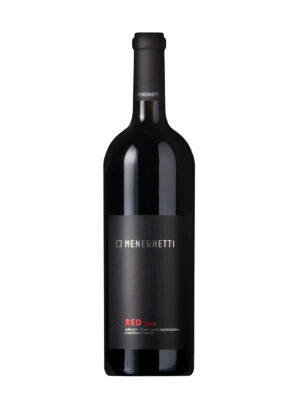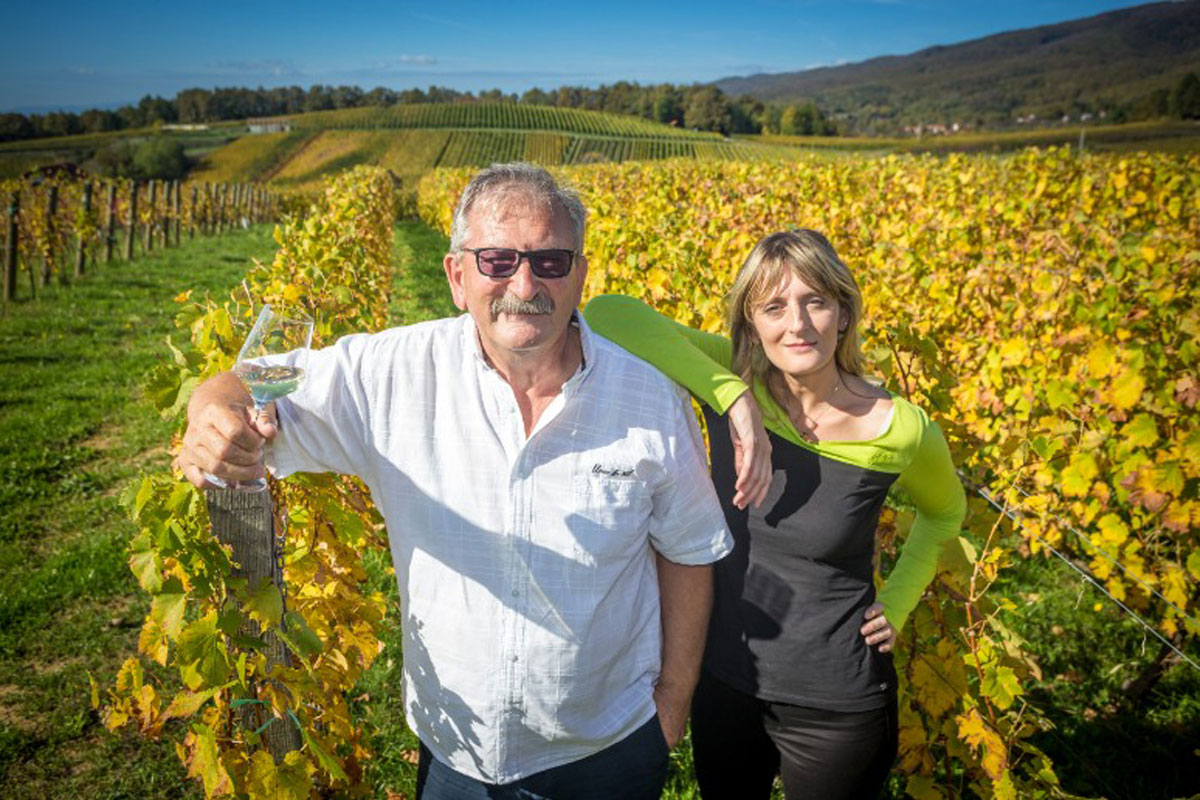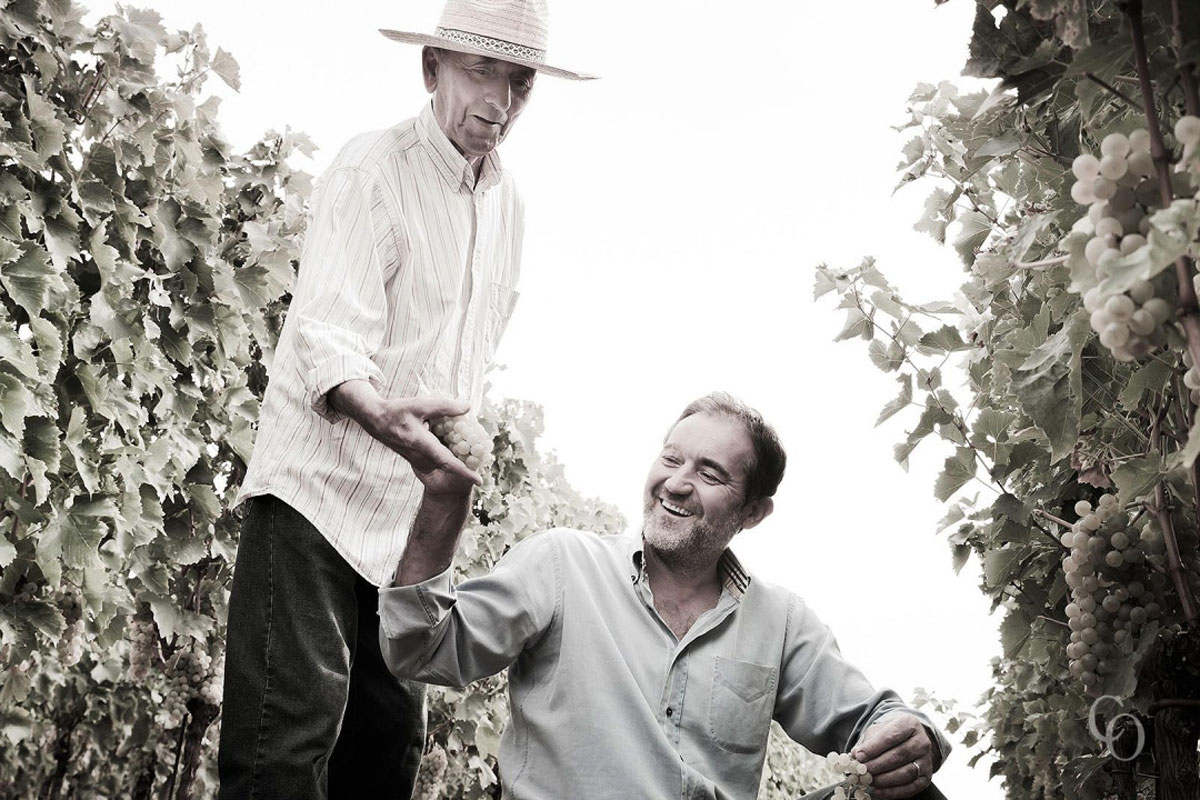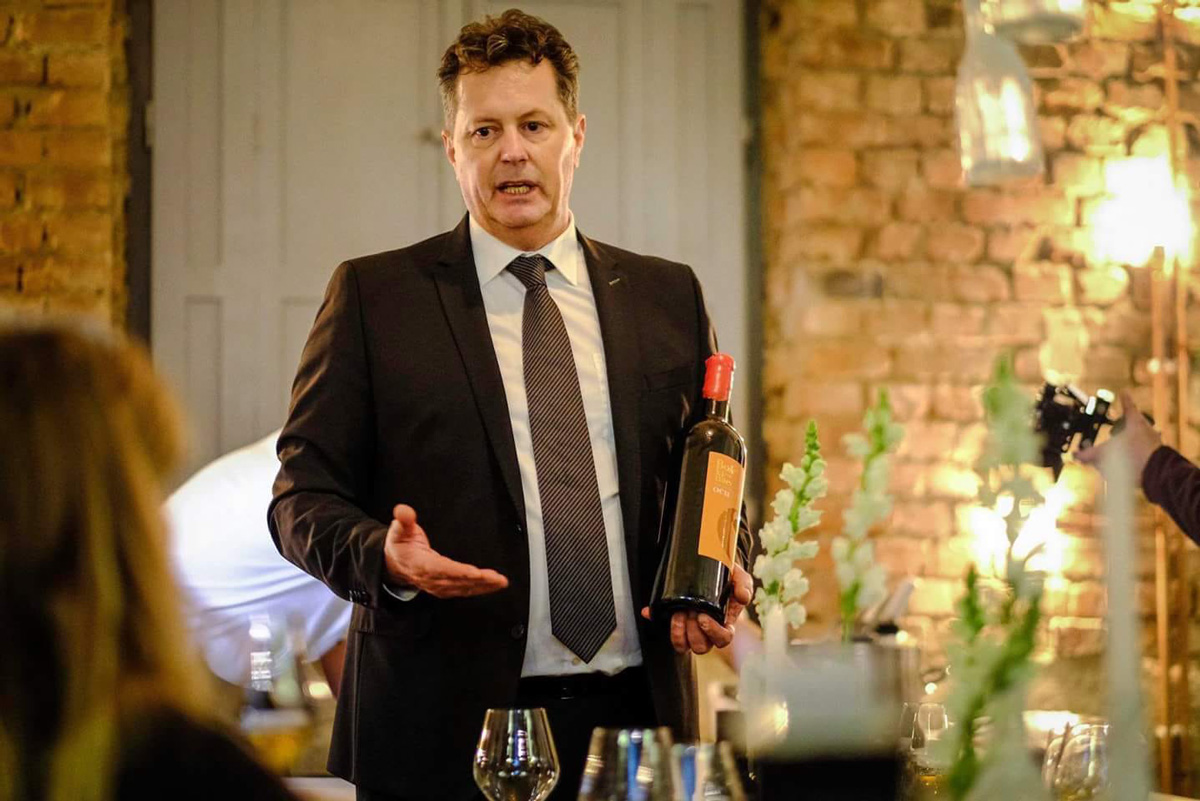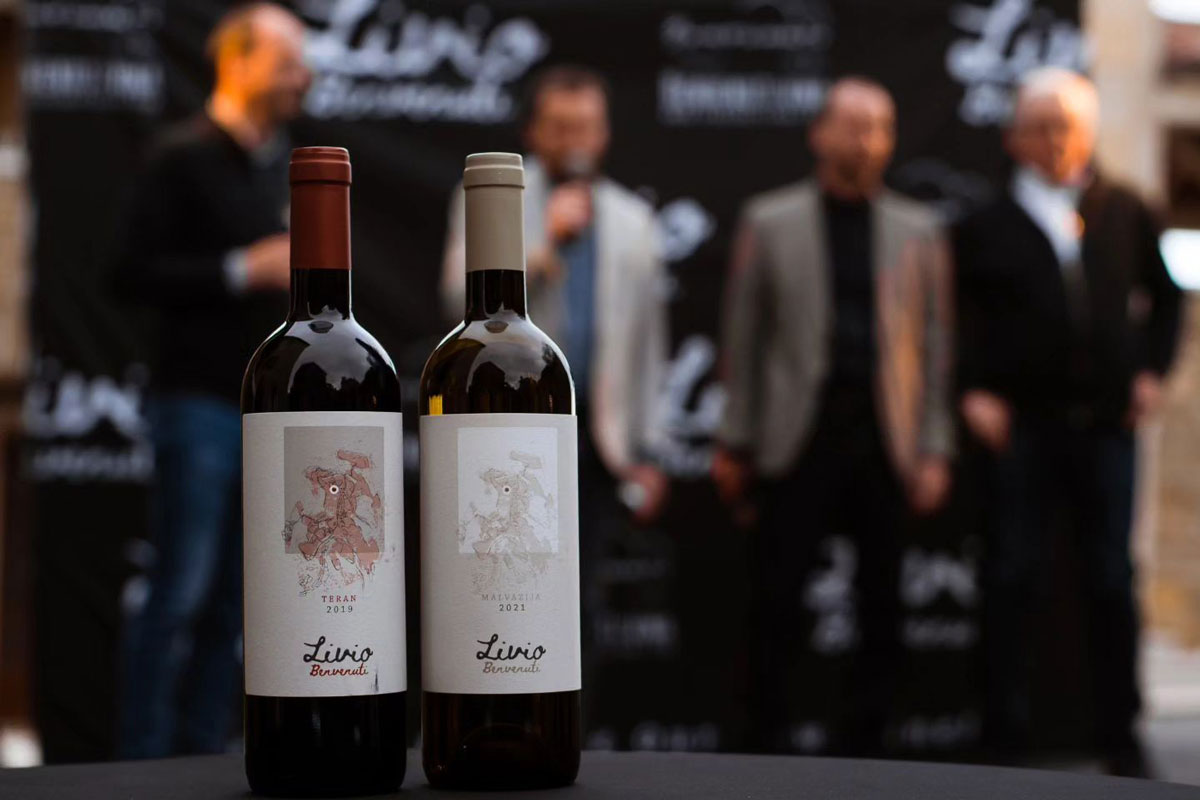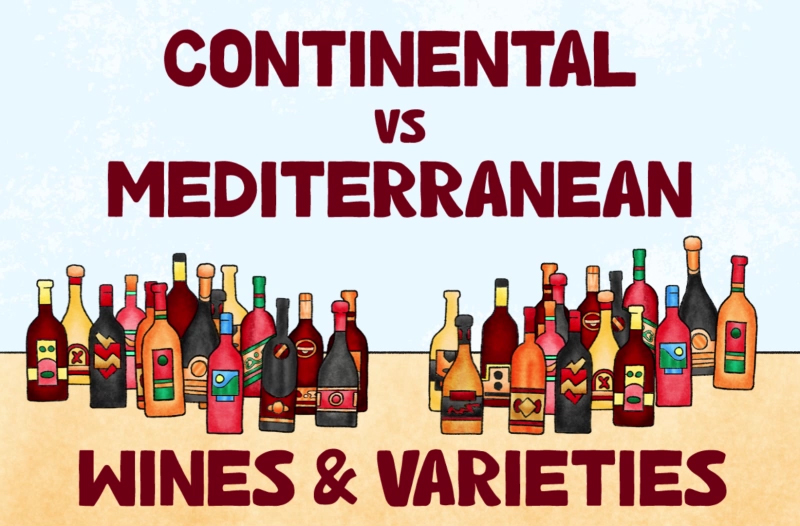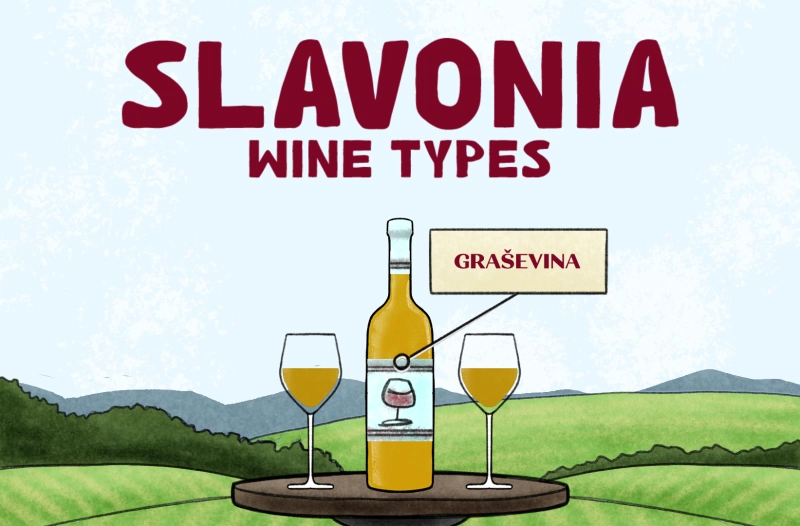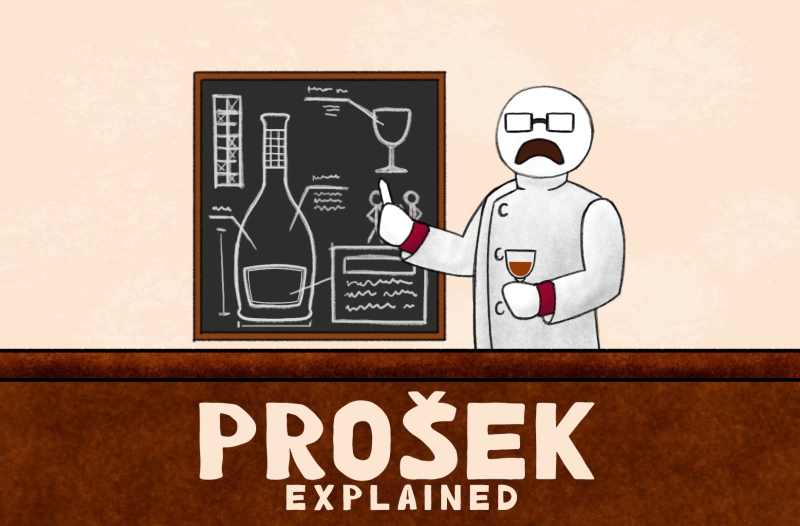Father’s Day Tribute: Reflections on Family, Tradition, and Winemaking
“Ocu”, the wine is dedicated to my father, dedicated to his stoic work, humility, kindness and love. Dedicated to all the fathers of our fathers who, despite everything, stayed on this and all other islets on these stone islands, where they taught us timeless, universal values. Dedicated to human strength and will so that even in the most challenging circumstances, they do not lose faith in a better life and cherish the hope that all problems can be solved with work, kindness and love. “Ocu” (to my father) is wine because wine is memory and joy and love; wine is life.
These are the words of Boris Šuljić, owner of a high-esteemed Croatian winery, a Michelin-star Restaurant and a boutique hotel on the island of Pag, to describe his celebrated wine “Ocu”.
Terms such as Heritage and Ancestors run deep in a wine lover’s jargon. Where family-run wineries inherit the tradition from generations before them is where we, as wine lovers, seek true value.
This is also an acknowledgement of what is important in wine. That without human influence, wine is impossible.
And that influence is exceptionally complex and profound when it comes to relationships between fathers and children.
Father’s Day is a holiday celebrated in many countries worldwide to honour and appreciate fathers, their contributions, and their influence on their children’s lives.
Father’s Day is typically observed in most countries on the third Sunday in June, although the date may vary in some regions. On this day, children and families express their love, gratitude, and respect for their fathers through various gestures such as giving gifts, cards or spending quality time together. It is an opportunity to show appreciation for the guidance, support, and love that fathers provide.
So, for this occasion, we would like to remember and recognise the profound influence of deserving fathers who passed on their experience and their passion to the children.
Fathers winemakers
Historically and today, Croatia is a land of small family-run vine-growing wineries. Many successful winemakers have taken over from their parents.
Among them, there are generations of winemaking families who belong to the very top of Croatian winemaking:
- Miloš winery – where Ivan and Josip inherit the Frano Miloš legacy
- Krauthaker – where Martina continues her famous father Vlado’s footsteps
- Tomac – Tomislav inherits one of the Croatian wine elders, the late Zvonimir Tomac
- Korak – Josip step into his father Velimir’s shoes, the living legend of Plešivica sub-region
- Crvik – where Petar takes after his father Andro and his ancestors before him
- Jerković – where Mate and Tomislav took over after the demise of their father Ivan
- Jagunić – with young Dominik taking the winery from his father Velimir
- Sladić – with Ante bringing his winery into a new era after his father Marinko
- Sladić – with Marko making his mark, taking over from his father Joso
- Grabovac – where Milan and Nikola continue their father Ante’s legacy
and many, many more who continue their respective family practice of winemaking.
Many include their notable ancestors in their winery’s appearance and market performance, like Rizman, a winery established in 2008 in the youngest Croatian vineyards region but with a family winemaking history.
Father’s positive example
A father who demonstrates a deep passion for winemaking and a strong work ethic sets a positive example for his children.
A father who possesses expertise and knowledge in winemaking can serve as a valuable mentor
A father who upholds strong family values and a sense of legacy in the winemaking business creates a sense of continuity and purpose. By involving his children in the family business and passing down knowledge, traditions, and values, he strengthens family bonds and ensures a lasting impact in the industry for generations to come.
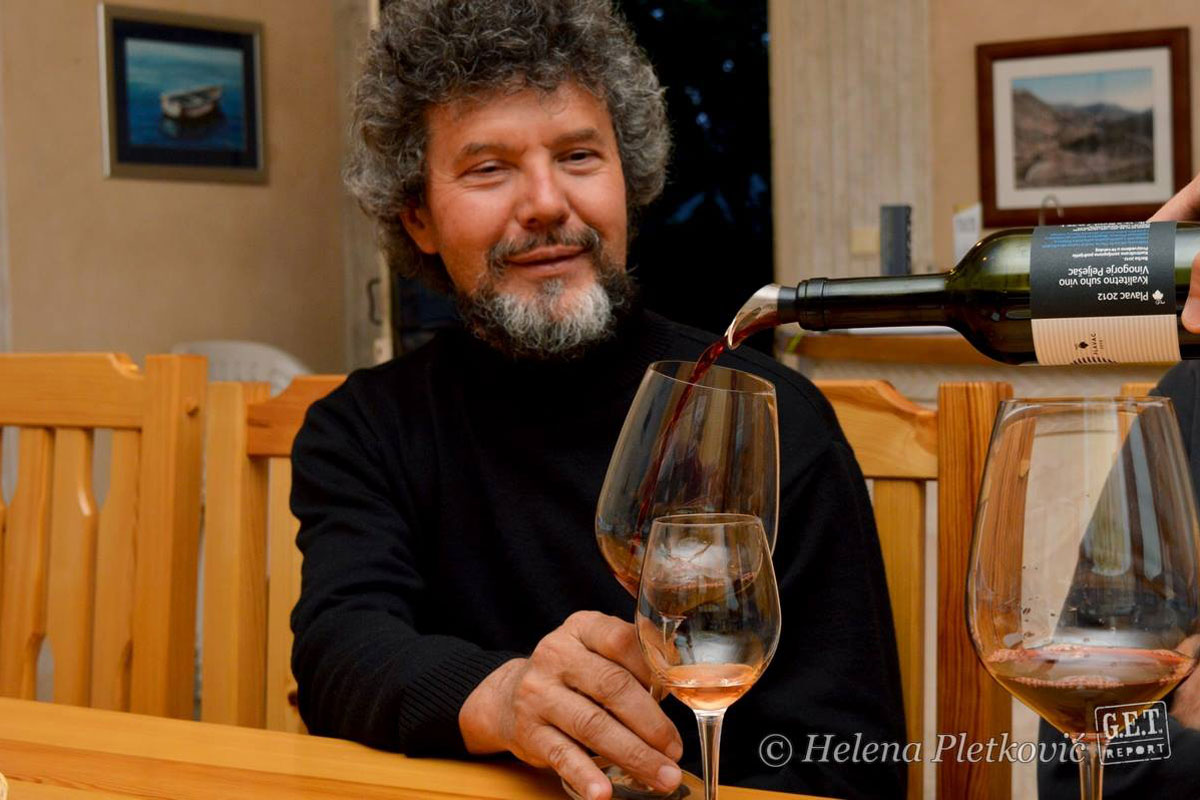
Frano Miloš, the visionary founder of the iconic Miloš winery in Pelješac, stands as an inspiration in that sense. His remarkable success story goes far beyond the mere achievement of building a significant winery from scratch through sheer hard work, sacrifices, risks, and sleepless nights.
Frano’s true visionary nature lies in his unwavering commitment to his original idea, unaffected by passing trends or external authorities, which led him to face adversity and be ridiculed within professional circles. His ongoing battles with administrative obstacles imposed by the Ministry, hindering his business at every turn, are widely known.
Stagnum, the flagship wine of Miloš cellar, was initially relegated to the lowest quality label – table wine – and some of his creations even faced bans on entering the market. However, these struggles with authority only served as needless challenges as Frano emerged victorious. His wines consistently surpassed their time, embodying a natural approach long before the term became popular.
While others produced jammy and smoky wines, Frano nurtured a more refined and vibrant style of Plavac Mali, reflecting the grape variety and terroir with strength and character. His wines have proven their ability to age gracefully for decades, while others lose their vibrancy after just a few years.
Today, Frano boasts a devoted following of loyal customers and admirers, alongside numerous fellow winemakers who have embraced the path he forged. The ill-wishers’ derision has long faded into insignificance.
Now, the next generation has taken the helm of the winery. Ivan, Josip, and Franica, Frano’s children, have elevated the family business to new heights while remaining true to their father’s visionary outlook on style and quality. They continue to honour his legacy by wholeheartedly embracing his vision, delighting both their customers and the broader wine community.
Wines Dedicated to the Fathers
Such is the influence of our fathers in a way we are often unable to perceive. But it’s never too late to honour it most respectfully.
Coronica Ottaviano
At the presentation of the new line, Moreno Coronica poured Malvasia Ottaviano from a 1.5 l magnum bottle. He explained this is because, for his father, a heavy worker who got up at dawn and stopped working at sunset, a litre and a half was the usual amount of wine he would drink every day. And he lived a beautiful, healthy and long life.
Ottaviano Coronica, a revered name among wine lovers, has also been profoundly influenced by his rebellious and visionary son, Moreno. Reflecting on his youth, when he entertained notions of escaping from the village, fields, and vineyard’s hard work, Moreno eventually returned home with fresh ideas that initially met resistance from his father. One of their most significant conflicts arose from Moreno’s insistence on reducing grape yields through meticulous green pruning—a practice Ottaviano struggled to accept, fearing the removal of healthy yet unripe bunches. However, when the exceptional quality of the resulting wines became evident in the cellar, Ottaviano wholeheartedly embraced his son’s method. In fact, he would later remark, “Moreno, head to the vineyard today; it seems to me we are still harvesting too little.”
This anecdote encapsulates the symbiotic relationship between Ottaviano and Moreno, where tradition meets innovation. Through their collaboration and the willingness to challenge established norms, they have elevated the wines of Coronica to new heights of excellence. The clash of ideas and the tension between generations ultimately led to the evolution of their winemaking practices. Ottaviano’s openness and recognition of Moreno’s visionary approach highlight the transformative power of quality-focused decisions in the vineyard.
This story resonates deeply with wine enthusiasts, showcasing the dedication to craftsmanship and the continuous pursuit of excellence. It exemplifies the ever-evolving nature of winemaking and the importance of embracing progressive techniques that enhance the expression of the terroir. Ottaviano and Moreno’s shared journey inspires us, reminding us that great wines often result from bold choices, a deep understanding of the land, and an unwavering commitment to producing wines of unparalleled quality.
Coronica Ottaviano is not the only Croatian wine dedicated to the father.
Boškinac “Ocu”
We have started this story with “Ocu” from Boškinac winery.
“Ocu” is made from indigenous grapes, native to the island of Pag, cultivated in an old vineyard and produced using traditional winemaking techniques, including fermentation in oak barrels.
The characteristics of “Ocu” can vary from vintage to vintage, but it typically showcases a rich and complex flavour profile. It often exhibits notes of ripe fruits, and spices with a delicate oak influence. “Ocu” is known for its elegance, balance, and ability to age very well, allowing the flavours to develop and evolve over time.
The wine holds a special place in Boškinac Winery, representing a heartfelt tribute to fathers and their influence on the family and descendants.
Benvenuti Livio Malvasia and Teran
Another Istrian winery honours tribute to their late father, and that is Benvenuti family.
Father Livio entrusted the boys with the helm right from the start, recognising their sense of responsibility and unwavering dedication to the craft of winemaking. The remarkable results they have achieved since then, coupled with their numerous accolades at prestigious international and domestic evaluations, have positioned the Benvenuti winery at the pinnacle of the wine scene in Istria and Croatia.
The modesty that naturally resides within all Istrian-born prevented them from realising the extent of their contributions. They are not mere reflections of their father but the visionary architects of their winemaking journey. The legacy they have forged exemplifies their determination to excel and their deep passion for the art of winemaking.
The Livio line of wines from Benvenuti Winery is a tribute to Livio’s passion, dedication, and contribution to the family’s winemaking tradition. The wines crafted under the Livio label are made with meticulous care, reflecting the family’s commitment to producing exceptional wines that showcase the unique terroir of Istria.
The Livio wines represent a meaningful connection to the Benvenuti family’s heritage and pay homage to the vision and spirit of Livio himself. They stand as a testament to his lasting influence and the continuation of his winemaking legacy by his family.
Križ Milo
Little do we know what fate has in store for us. Long have Denis learnt from his father. How to make wines that are today called “biodynamic”. Not that his now late father knew any other way how to make wine.
And even if he did, he hasn’t shown this to his son. Determined for him to inherit the pain of labour together with the joy of life.
That joy could be felt in Križ winery Plavac Mali, especially the latest label, named “Milo”, after the late father.
It is one of those wines you can’t get enough of once you tune into its unique frequency.
Through Milo, the Križ winery had found a way to keep Milo’s spirit alive, to ensure that his love and passion continued to touch the lives of others. It is a testament to the power of love, resilience, and the enduring bond between a father and his children.
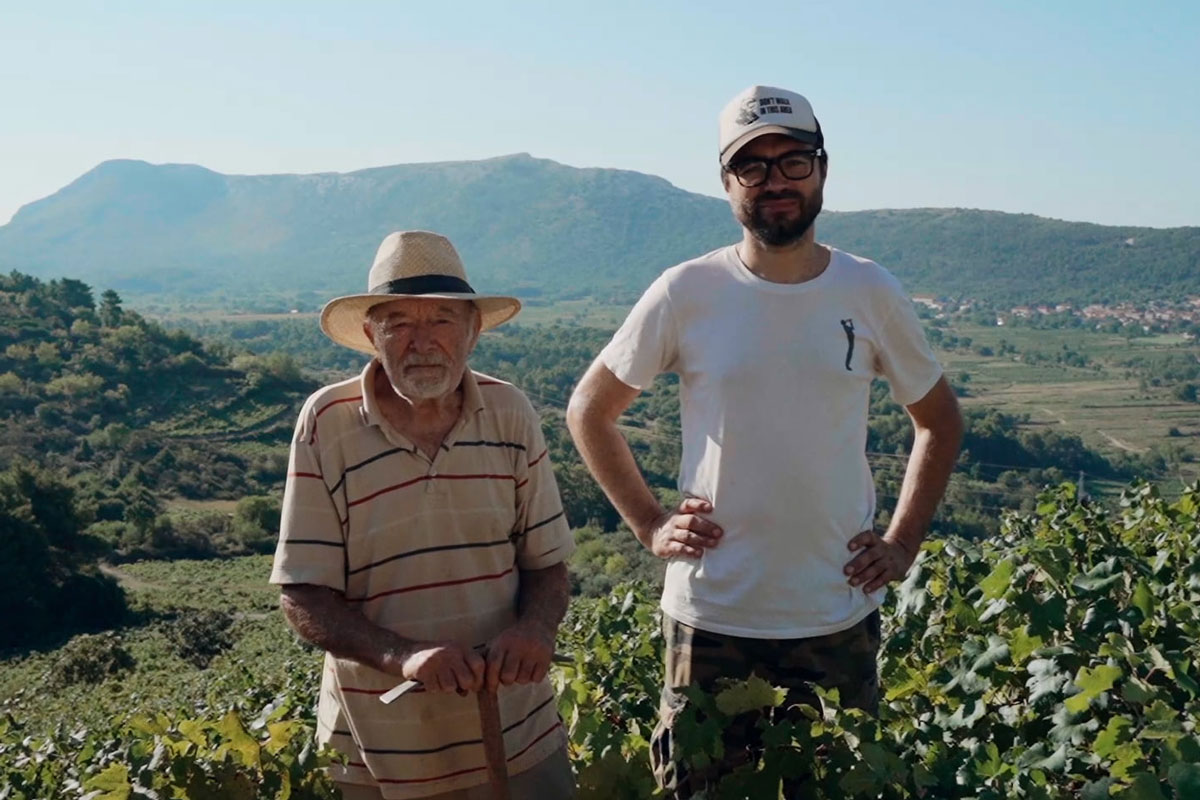
A father’s positive example in winemaking goes beyond just the technical aspects of the craft. It encompasses qualities such as passion, dedication, knowledge, quality, sustainability, relationship building, entrepreneurship, and nurturing family values.
Such an example can inspire and shape the children’s future, encouraging them to carry on their legacy and make their own mark in the world of winemaking.
Let’s salute inspiring fathers and worthy successors!


